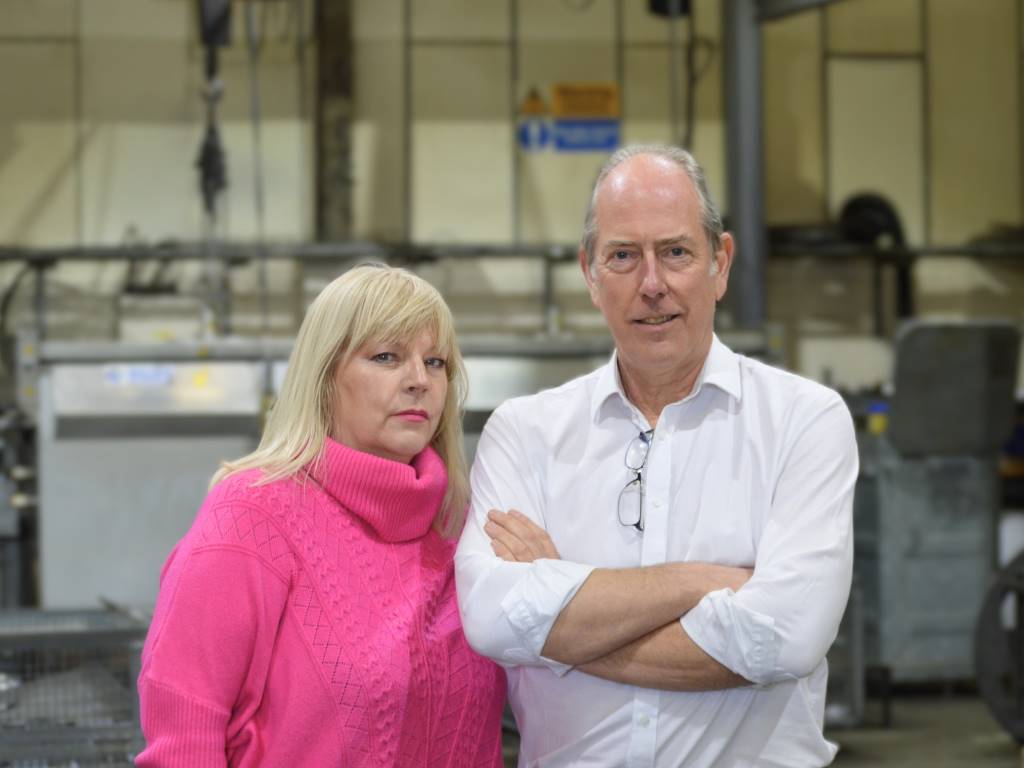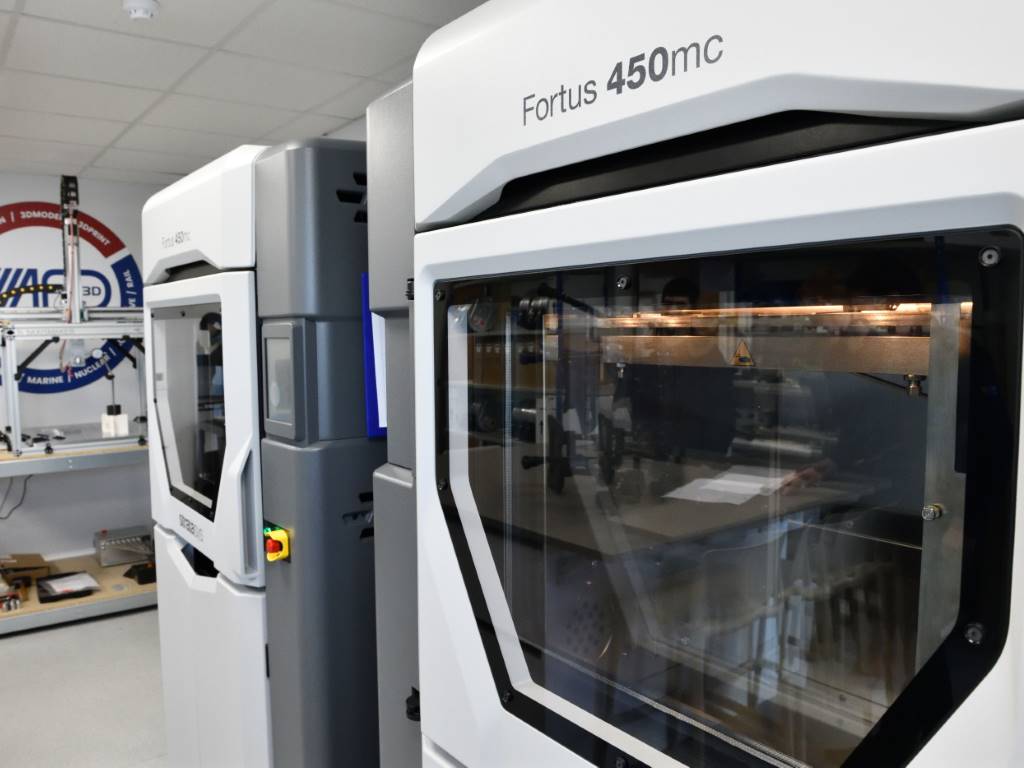Visiting MCM in Italy to find out about its turnkey manufacturing systems

Machine tool builder and flexible manufacturing system developer MCM (available in the UK through sole agent RK International Machine Tools) offers highly sophisticated turnkey solutions for its customers. Ed Hill visited its factory in Vigolzone, Italy to find out more.
Integration Italian style
Machine tool builder and flexible manufacturing system developer MCM (available in the UK through sole agent RK International Machine Tools) offers highly sophisticated turnkey solutions for its customers. Ed Hill visited its factory in Vigolzone, Italy to find out more.
In the world of fashion, Italian tailoring has a long-established reputation for elegance and style and although it may be a simplistic comparison, much the same could be said for the country’s approach to engineering.
A company that in many ways epitomises this perception is MCM. Based in the Piacenza region of Northern Italy (historically well known for its machine tool industry) the company, founded in 1978, designs and manufactures some of the most advanced manufacturing systems in the world.
In recent years (under the ownership of the Chinese RIFA engineering group) the company has also seen substantial growth, more than doubling its turnover to €101,000,000 in 2018 and employing over 330 people. It has sold more than 2,500 machines globally, predominately in the aerospace sector, but also in the automotive, industrial, energy, oil and gas and defence markets. As well as it three manufacturing plants in Italy, the company also has subsidiaries in Germany, France, China and the US.
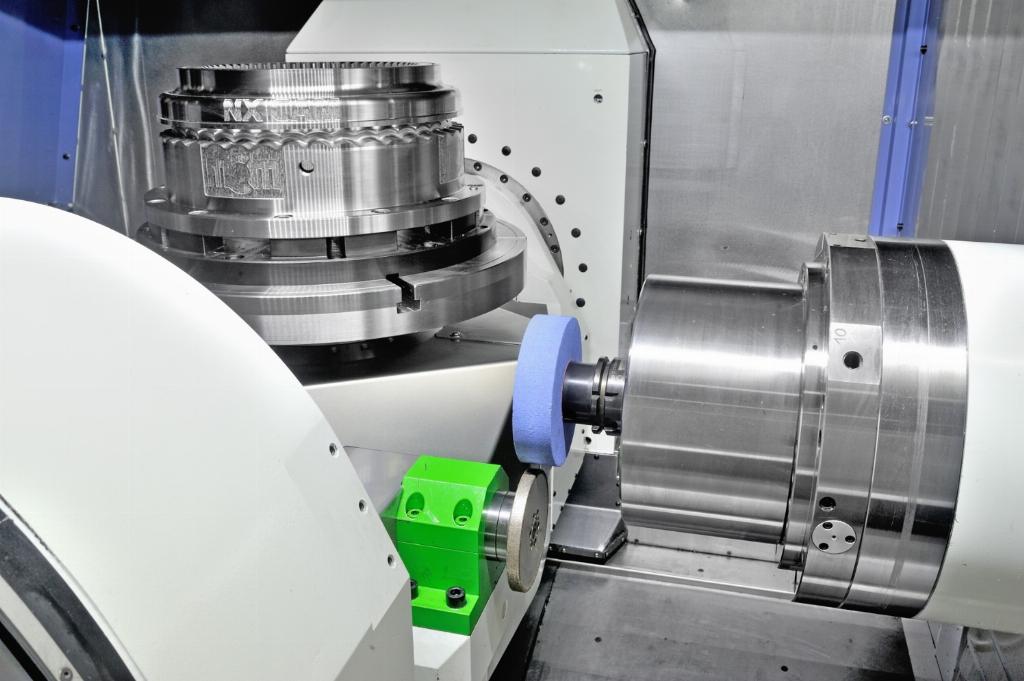
Top turnkey specs
This is not the ‘stack ‘em high; sell ‘em cheap’, high-volume end of the machine tool market. MCM (Machining Centres Manufacturing) technology can be found in some of the world’s most eminent engineering OEMs (Airbus, Safran, GE, FCA) where it provides companies not just with sophisticated machine tools but complete turnkey flexible manufacturing systems (FMS’).
That’s not to say that MCM machines aren’t suitable for the smaller subcontractor either, as they offer highly flexible manufacturing systems that are easily adaptable to any shopfloor.
In terms of machine tools, MCM offers four families of horizontal machining centre aligned to workpiece size, starting with the Clock range at the small-medium sized end of the work range, then moving up to Tank, Tank G and the largest machines the Jet-Five family.
These are all highly customisable 4- and 5-axis machine tools that can mill, turn, drill, bore and also grind workpieces if required. In fact, due to MCM staff’s extensive engineering know-how virtually any configuration is available as the machine structure, spindles, rotary tables, tool management, pallet handling systems and software are all designed, developed and built in-house.
It’s this multidisciplinary approach to customer needs that CEO, Gian Luca Giovanelli says is the core value or “DNA” of the company.
“We completely own our technology which means we can perform to our key strengths,” he says. “Our staff are our greatest resource; they give us the flexibility and technical know-how that we need. The strength of our offer is not just our machining centres, but the fact that they can be integrated with other benefits such as flexible automation, system integration, supervising software and manufacturing (or process) technology, to give customers highly adaptable flexible manufacturing systems.”
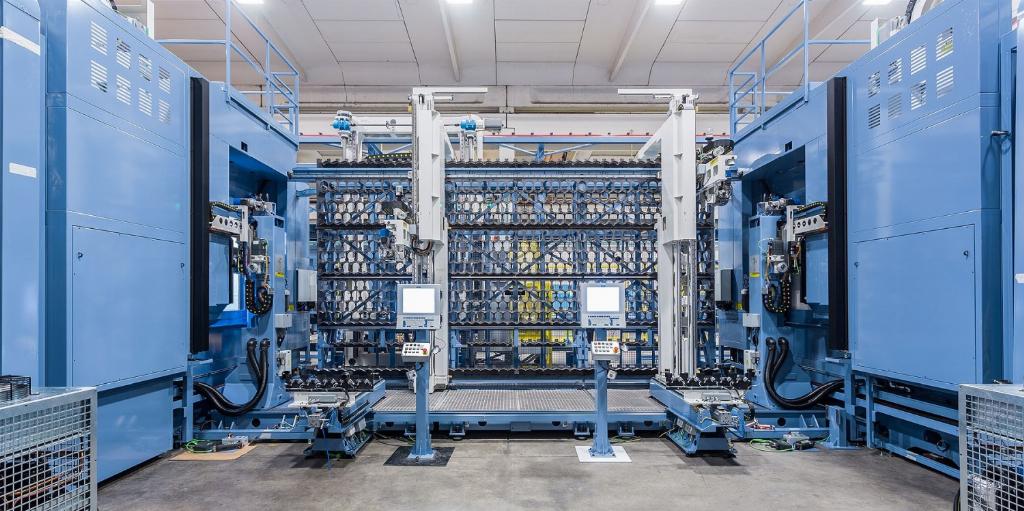
The software link
Designed with Industry 4.0 concepts in mind, MCM’s machines and FMS’ include sensors to help monitor all aspects of the manufacturing process. This is linked to the company’s own jFMX supervision software, developed by its subsidiary MCE, which is described as a link between a company’s own ERP system and the machinery on the shopfloor.
jFMX can coordinate and centralise management of an entire workshop. The cloud-based software can automate information flows related to technical data, integrate CNC machines with engineering offices, production planning, quality control and CAD/CAM systems as well as manage maintenance schedules.
Notably, all MCM machine designs and systems are subjected to failure mode, effects and criticality analysis (FMECA) to ensure their reliability which is essential given that often they are installed as part of a company’s need to increase automation. The machines can be supplied with either Fanuc or Siemens controls.
Advanced adaptations
As you tour the MCM shopfloor the first impression is how highly custom-built each order is by its engineers. Each station where the assembly of machines takes place represents a multitude of technology and engineering skills. Here the systems are built, assembled and tested and then integrated with tool magazines, loading and unloading pallet systems, and robotics if required.
Not surprisingly this sort of customisation also requires a considerable amount of input from the customer and MCM sees this interaction as an ongoing partnership. Once MCM machines and FMS’ have been installed at a company, it is likely that further expansions, adaptations and upgrades will be carried out in the future.
“We assist customers from the training of their engineers to the design, development and validation of the entire manufacturing process.” Mr Giovanelli says.
MCM’s modular designs mean that each installation can be adapted to fit the space available on a customer’s shopfloor. They can also be integrated with other processes too such as EDM, deburring machines, metrology systems and washing stations.
In many cases multiple MCM machines are linked together with FMS systems. One example is an installation at the aero-engine manufacturer Safran, where 12 MCM Tank 1600 machining centres are arranged in groups of four linked to three separate FMS systems manufacturing LEAP engine fan casings and other aerospace components.
One of MCM’s most significant innovations has been its ‘Mirror’ tool magazine (launched in 1987) which means two machines in an FMS can share and manage a large tool inventory to optimise production. This avoids the need for repeat numbers of special tools, reducing costs. This ingenious and efficient solution is available on all MCM models.
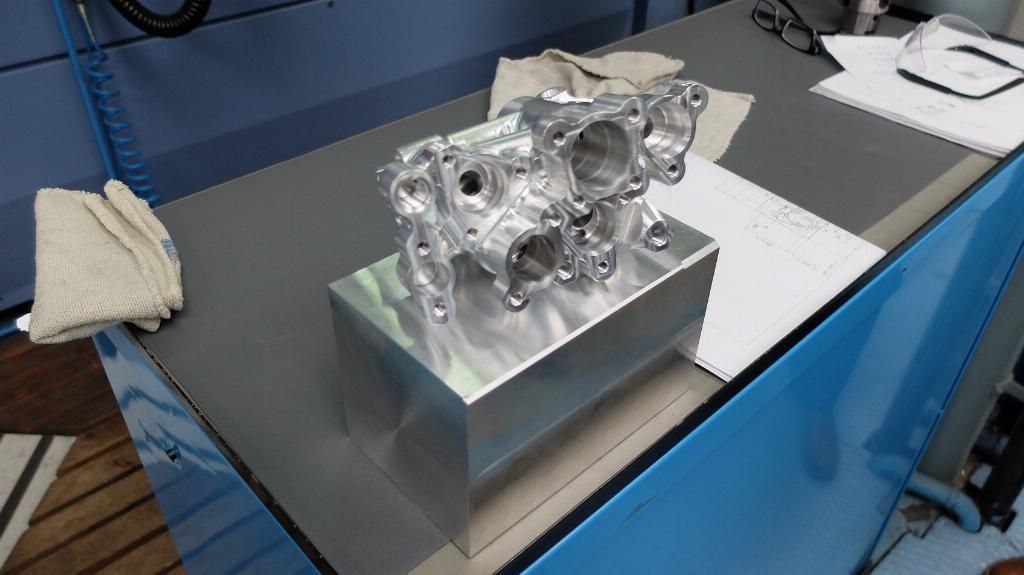
Parts per second
A typical example of MCM machines can be seen at nearby Italian aerospace supplier Secondo Mona which has a total of seven machines and FMS’ at its plant.
The company specialises in the design and manufacture of aerospace fuel systems and equipment for many well-known civil and military aircraft programmes, as well as manufacturing complex sub-assemblies, manifolds and other high precision components for major aerospace OEMs.
Its first MCM Clock machine was installed at its factory in 2005 and since then the company has gradually added more with the FMS’ enlarged and modified to accommodate increased demand from customers. For example, the first machine which was originally installed with a two-pallet loading system, now has 18.
Secondo Mona’s largest and most recent MCM installation takes up a whole temperature-controlled factory unit. Consisting of two Tank 1300 machines with axes travels of (X 1,300mm x Y 1,400mm x Z 1,400mm) the HSK-A100, 18,000rpm spindle machines are linked together in MCM’s Mirror tool configuration which means they are able to share a 599 cutting tool magazine.
The FMS is made up of a two-level shuttle (800mm x 800mm pallet) system linked to two loading and unloading stations.
Riccardo Mona, managing director of Secondo Mona comments: “We first installed MCM machines in the early 2000s because we were beginning to machine larger parts. The machines can work in three shifts without operators if needed which means we are able to operate them 24 hours a day, which helps us to remain competitive. All the machines have been customised to match our requirements.”
MCM’s founders were nine engineers driven by a passion for engineering and set-up the company after being made redundant by another machine tool manufacturer. Their first machining centre was named ‘Progress’ which seems highly appropriate for a company that is driven by innovation and places such faith in the talent of its engineers to provide customers with such sophisticated manufacturing solutions.
RK International Machine Tools www.rk-int.com
MCM www.mcmspa.it





